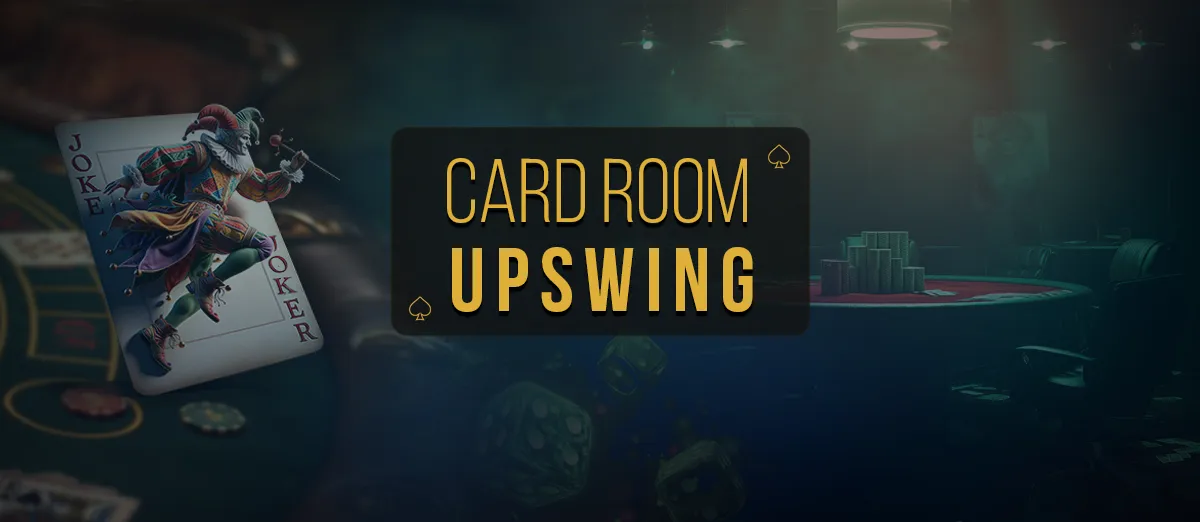Card Rooms and Their Place in Today's US Gambling Landscape

There are many different niches now in the increasingly growing gambling industry, especially with the continuing evolution of online gambling in numerous countries. Especially in the US, which has seen many states legalize different aspects of online gambling, particularly in the last few years, though, prior to this, there was definitely a demand.
In quite a few states outside of Nevada (Las Vegas) and New Jersey (Atlantic City), you could find land-based casinos in major cities, though even these were few and far between. For many gambling enthusiasts, there has, more or less, always been one option that they have always been able to pursue over the decades, with card rooms being prevalent across most of the US.

The Enduring Popularity of Card Rooms
You may be surprised to find out that some states have upwards of 20 different card rooms available that, despite the major rise of US online gambling and the increase of land-based casinos. Due to it being the main game that is played in them, these are also known as poker rooms, which makes sense when thinking about it. Of course, it is possible to play poker in casinos, in many forms, though there are considerable differences.
There are multiple reasons why poker rooms appeal to players, even more so than casinos. A vast majority of poker players prefer a ‘no frills’ environment that is relaxed and, essentially, to the point, meaning what you see is what you get.
In a number of casinos, the ‘buy-in’ amounts to play poker can be a lot more than some players are willing to pay, while slots can also be limited, if not, VIP. Interestingly, poker is one game that isn’t extensively played in casinos - perhaps due to the number of card rooms there are. Certainly, you can play more than poker in card rooms; the other main game being blackjack and perhaps in very few cases, baccarat.
When thinking of a card room, it is easy to conjure up images of a dark and dingy ‘back room, underground’ vibe in dicey surroundings, with armed security at the entrance and which perhaps needs a password to enter - reminiscent of some movies.
While perhaps only a small handful of these might still exist today, the vast majority are in a professional setting in bright and spacious surroundings and have a generous number of tables while some also have facilities for refreshments.
Loopholes, Legalities, and the Future of Card Rooms
For all intents and purposes, card rooms are legal, but only in states where it is possible to obtain specific permits. Every state differs in terms of how strict they are, because some have tighter regulatory requirements to get a permit.
Texas sports betting and gambling regulations are one of the strictest in the US and the legalities surrounding card rooms have been contemplated multiple times. However, in 2020, Dallas approved its first official poker room; Texas Card House with ambitious plans to expand in the future, however, this wasn’t without contention and Dallas City Councilperson, Cara Mendelsohn revealed the various challenges that could be faced, especially socio-economically.
Poker rooms are not going to be welcomed in communities where they back up the single-family housing. For the city, I think we need to look at entertainment districts and ways that we could encourage people to be able to get together in a safe and legal way, not sure that this business model fits that definition though. Perhaps, there's a better place for [poker rooms], if it's even legal, which I think is in question.
It was found though, that despite the matter of the legality of poker rooms in Texas being contentious, it emerged that a loophole in Chapter 47 of the Texas Penal Code made them legal to operate.
In Texas, most forms of gambling are illegal. But in the penal code, there’s a way to run a private club that gives you a defense against prosecution for illegal gambling. And ultimately there's three things you have to do. You have to play in a private setting, so we run as a private club. The second thing is you can't have an economic benefit from the gambling itself, so we don't take a rake. We do operate in a manner that we essentially charge by the hour to be within the facility. And the third thing is everyone has to have an equal chance of winning.
What makes a card house legal in the state is that they only offer poker, where it is player against player. It means that games such as blackjack, roulette and craps, where the house has an advantage are illegal.
Texas is also one state in the US where card rooms would not necessarily have a major impact on the rest of the gambling industry as a whole. The state has few Native American casinos, with gambling still prohibited in the state and, as a result, card rooms such as the Texas Card House, essentially has a monopoly on gambling, albeit, that only being poker for now.
However, there is some confusion about online gambling in the state. While it is illegal to register and operate an online gambling site, players can still (if they are able to), gamble online, using an offshore brand.
The Fight for Survival
Arguably, the state with is a significant demand for card rooms, is one that has vociferously rejected all forms of gambling over the last few years, despite it looking likely that some form of online gambling bill will be approved. Gambling enthusiasts who are residents of California rely on card rooms as their main outlet, however there have recently been battles with Native American casinos with 10s of millions of dollars hanging in the balance.
There is legislation currently pending that would allow the tribes of California to sue private card clubs, citing the fact that card rooms affect tribes’ exclusive casino rights and their offering of a Las Vegas style gambling experience. As a result, card rooms in California fought back with a staggering lobbying campaign last year with Hawaiian Gardens Casino (which is a card room), spending $9.1 million.
If you’re going to attack us and try to take away what we’ve had for decades, then we’ve got to fight back. And so, we’re going to spend the money that we need to spend. I mean it’s about survival at this point.
On the flip side, there is the argument that what some card rooms in the state offer flout the legalities of what is actually allowed, which has garnered much opposition. Anthony Roberts, chairman of the Yocha Dehe Wintun Nation, recently disclosed that illegal activities at card rooms in their region have resulted in annual losses of $13 million for the Cache Creek Casino Resort. He emphasized that these activities infringe on their rights and hinder their ability to support their community, employees, and local government partners.

What Sets Card Rooms Apart from Traditional Casinos
It is understandable that there might be some confusion about how card rooms work, especially how they stand out from traditional casinos. Every card room operates in one of a few ways. Due to the fact that in the majority of card rooms, the only game that is available to play is poker (player versus player instead of player versus house), it means that card rooms do not make any money in the traditional sense such as brick-and-mortar casinos.
One of the most common ways is that card rooms will charge a set fee and each dealer may also take a cut of the winnings for each game as well. In other cases, card rooms will charge by a specific time period, such as for every 30 minutes and some may impose a minimum limit of one hour depending on what the demand is like.
Some card rooms may charge a set fee per hand per person in addition to a nominal entry fee so it really can depend on a number of reasons. There are also card rooms that have a minimum buy-in amount per poker game and even a minimum/maximum number of re-buys per person as a way of generating more revenue - again, this likely depends on how busy the facility is.
Depending on which state you are in legal age entry requirements will vary when in it comes to card rooms. The state of Florida for example states that the age limit is 18+ for card rooms, however some states have an explicit age of 21 or over.
Every card room will also have its own unique opening hours; however, these may also be governed by specific states. For example, some may open on an evening through to the early hours of the morning only, or it could be that some close at midnight though are open from 11am - it just depends. Invariably though, enthusiasts can usually find a game of poker at multiple times throughout the day.





Review this Blog
Leave a Comment
User Comments
comments for Card Rooms and Their Place in Today's US Gambling Landscape